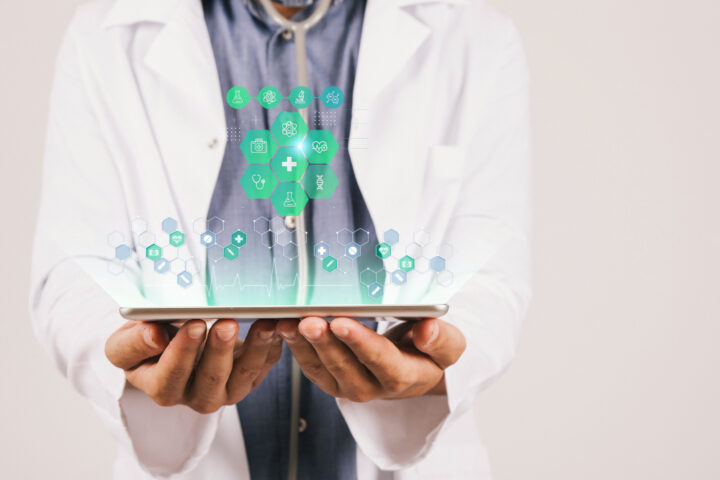Should healthcare professionals be on social media?
I’ve been asked this question countless times before and answered it in several forums. I said YES healthcare professionals should be cautiously on social media in last year’s Philippine College of Physicians convention (Facebook for physicians; Use, Misuse, Abuse, Confused) . I said YES, HCPs should be on social media responsibly on #healthXPh‘s regular twitter chat (post and the chat transcript ) and recently, I answered a resounding YES, HCPs should be on social media, when an audience asked a similar question during the Healthcare Social Media Summit 2015 (#hcsmPH) in Cebu.
Before explaining my answer, let me digress a bit and explore the reason why healthcare professionals are NOT on social media.
I asked a physician in the Philippines why he is not on social media (as a physician). This physician has a huge private practice and is a consultant in some well known healthcare institutions in a city. He answered me this:
“I don’t want to be known as a physician on social media. I’m pretty scared of what get posted on my profile. It might backfire on me. Anybody can throw malicious comments on me, or hack my account and wreak havoc on my profile! My healthcare institution also forbid us to post anything related to work without clearing it from them first. Healthcare is my work so I need to ask them first every time I post on social media! That’s crazy! Besides, I was quite successful with my practice without social media, why would I need one now?”
Such is a classic answer from a professional working in a highly regulated industry. Physicians and lawyers are examples of people working in a highly regulated industry. Highly regulated industries like law and healthcare have strict privacy and confidentially rules governing sharing of information . The ease of sharing private and confidential information on social media is what healthcare professionals and healthcare institutions is apprehensive about. This distrust for social media and the people using it stem from some well known misconceptions about social media.
Social media is person to person (P2P)
That social media is just for marketing, branding and showing off is not true. Social media is a person to person (P2P) network. We tend to forget that both ends of social media conversations and networks are people. We connect with people and build networks tru social media, just like what we do everyday, even at work. It is interesting to note that in highly regulated industries like healthcare, we service people! How can healthcare miss the world of social media then if we are to service real people or connect with them?
This is one very good point from Mark Schaefer (@markschaefer) in his book Tao of Twitter. Highly regulated industries allows the people in it to attend conventions, workshops, seminars etc. What do they do in those events? Meet like minded people, learn from industry experts, expand networks, sometimes build brands, market etc. All of these we can do in social media too, often without leaving the comforts of our home or the workplace.
So why are healthcare professionals missing the world of social media? Apprehensions? Misconceptions?
Social media is public space, no matter how private your settings are.
“I have social media profiles but its personal and secret to only a few friends.” Added my friend above. He has a social media account after all, only that it is a personal, “private” account. A word of caution about privacy settings. In the evolving social media and digital world, any post on internet particularly on social media, is a post on public space. What you privately post now, will come out on public searches tomorrow.
So while my physician friend is on social media (albeit privately), why is he still missing out a lot on the power of social media in healthcare? Remember, humans are basically social. Social media as it is evolving right now is really a person to person conversation, human connections. Therefore, authenticity is an important value.
That’s why I’m advocating HCPs should be on social media (if they’re not yet on it) and act as they would do daily, at work, when you connect with people or talk to them. That is with authenticity as a healthcare professional. Social media should just be an extension of your offline pprofession and you should act like one, accordingly.
Note: To guide healthcare professionals, how to act on social media, #HealthXPh summed up a crowdsource social media manifesto for healthcare professionals and publish it here. Sign to show support!
Again, I say yes, healthcare professionals should be in social media. What we do at work- “authentic helpfulness” ( to borrow @markschaefer term), talking to real people, of building networks and learning from our patients and colleagues, social media has an entire world of new tools to enhance this. That’s never been for show off in the first place!
Resources:
- “PH doctors spell out limits of social media use in the medical profession”. The Manila Times . May 7, 2014
- Lei, Katherine . “Adoption of Social Media by Healthcare Professionals: Optional or Necessary? HealthXPh.net March 14, 2014
- #HealthXPh Tweetchat transcript @symplur From:Sat Mar 14 6:00:00 PDT 2015 To:Sat Mar 14 7:00:00 PDT 2015
- Schaefer, Mark . Tao of Twitter. Mc Graw Hill Education. 2014





Greetings sir… I am also an advocate of using social media by health professionals. Using social media to to communicate with more patients is more efficient since we are already in the Information Age. We have to keep up with Doctor Google as much as possible.
But the physician you just asked has valid points. He already has an established relationship with his patients for long term so he believes there is no need social media.
So it is up for the newer generation of physicians to use social media as an efficient tool. Unfortunately, medical schools still do not teach anything related to social media yet. As of now they have to learn this on their own, but they are very fortunate to learn about it from you.
Just my 2 cents. Cheers.